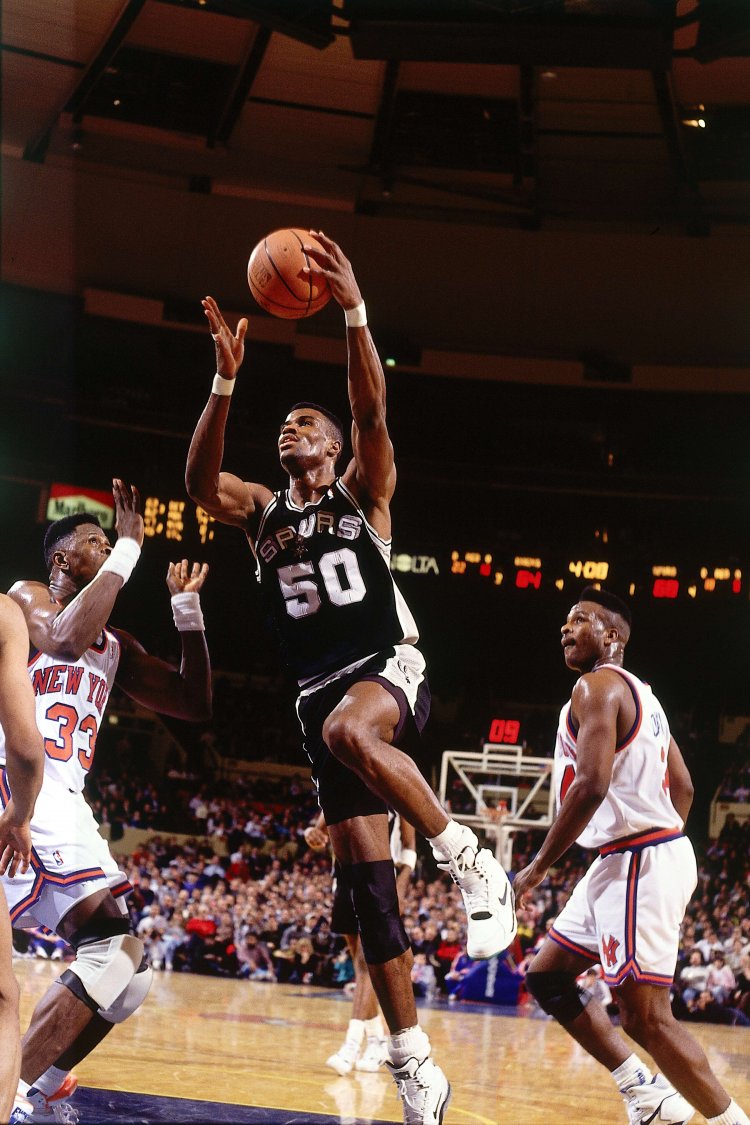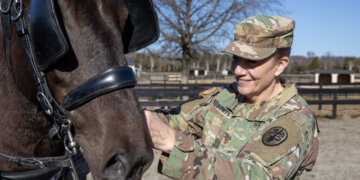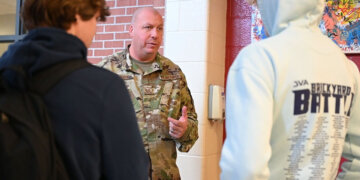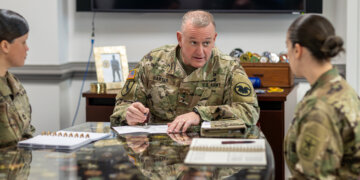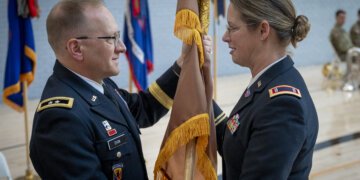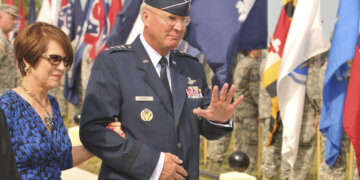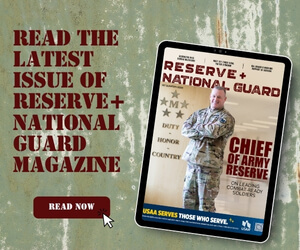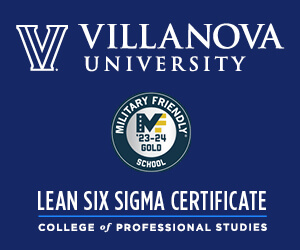Six years ago, the U.S. Naval Academy honored four men with 2015 Distinguished Graduate Awards — three retired admirals and The Admiral.
David Robinson graduated from Annapolis in 1987. The 7-foot-1 future NBA Hall of Famer completed two years of active duty as a civil engineering officer at the Naval Submarine Base Kings Bay in Georgia and served an additional six years in the Navy Reserve.
Widely considered the greatest basketball player in Naval Academy history, Robinson gained the nickname “The Admiral” during college.
But Robinson, who actually topped out as a lieutenant, didn’t initially embrace the moniker, which created a few awkward moments when directed his way in the presence of actual admirals.
“Oh yeah, many times,” Robinson said with a laugh. “Most of the time, people have been cool about it, but when I was in college it was often very uncomfortable for me.”
A ‘high level of respect’ for admirals
Robinson would become a prominent Navy spokesperson during his basketball career and said his superior officers usually understood and accepted the nickname. It was well-earned for his on-court exploits, including leading the Midshipmen to an Elite Eight appearance in 1986 and receiving national honors as recipient of both the Naismith and John Wooden College player of the year awards in 1987.
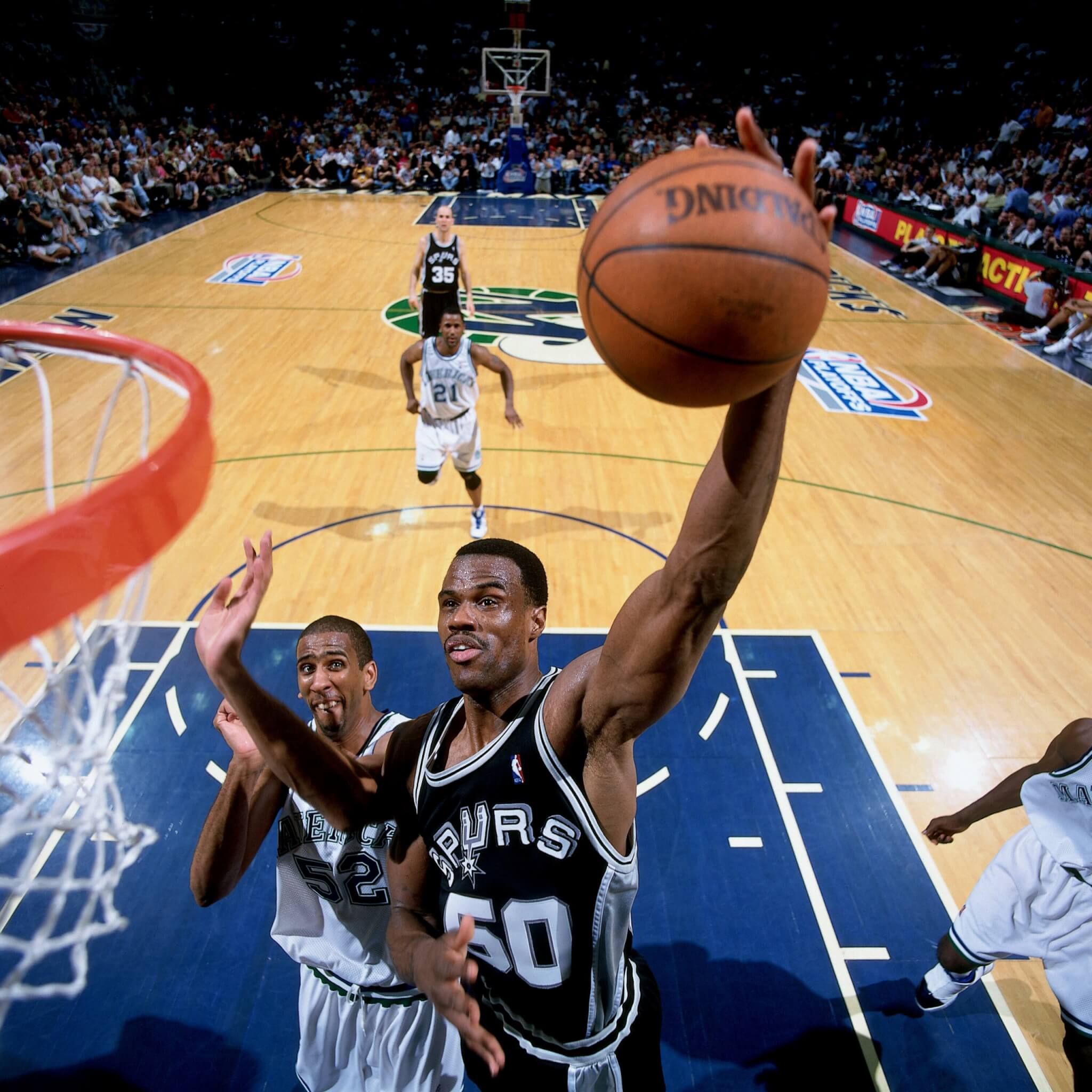
“It was more of a personal thing where I just had such a high level of respect for the admirals,” Robinson said. “They have people’s lives in their hands, and here I have a basketball. Even to this day, I still feel like the real admirals have been through the fire, but admirals treat me with such respect and such appreciation that I’m really humbled by it.”
Robinson’s grandfather, Ambrose Sr., served in the Army and his father, Ambrose Jr., served in the Navy, giving him a deep appreciation for military service.
“For my grandfather and for my father, it gave them opportunities that the rest of society probably wasn’t ready to give them,” Robinson said. “My father grew up in Little Rock, Arkansas, in the ’50s, so they’re integrating schools.”
Robinson’s father, who climbed the ranks to become a senior chief petty officer, joined the Navy after dropping out of college and served for two decades.
“It was kind of fair, as fair as possible, a place to be for everyone,” Robinson said. “It gave you a chance to perform and advance, so I always had a high level of respect for the military because of that.”
RELATED: Flint-based soldier achieves ‘slam dunk’ status for recruiting mission
It’s also central to the advice he’d give young enlisted sailors and reservists.
“I would just tell people you’ve got a clean slate and a fair opportunity, so just go in there and make the most of it,” Robinson said.
That’s not to say there won’t be difficult moments.
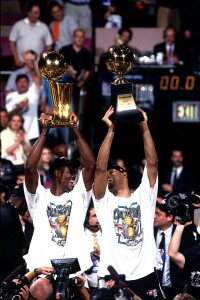
“When I got to the Naval Academy, it was an eye-opening experience,” Robinson said. “My dad was a Navy guy and my grandfather was an Army guy, so I had been around the military. But it was a whole different story once I had kind of given myself over to the military, and I realized that first day that there was really no turning back from this one.”
That first day, Robinson vividly remembers being relentlessly screamed at — “calling you all kinds of things, you’re a freshman and you’re a plebe and everybody’s just giving you a hard time” — and feeling a bit lost with his high-and-tight haircut and new uniform that seemed to swallow his individuality.
“I think I went to bed at night kind of wondering did I make the right choice,” Robinson said. “That was probably one of the things I remember the most. From that day on, I don’t think I ever looked back, but, boy, that first day I was kind of wondering if I made the right choice.”
David Robinson says Navy helped NBA career
Robinson also credits the discipline and self-sacrifice learned at the Naval Academy for helping launch one of the greatest careers in NBA history. He also gave his military career some credit for what he described as the “ultimate” achievement — winning the San Antonio Spurs’ first NBA championship in 1999.
When the Spurs drafted Tim Duncan in 1997, rather than feel threatened Robinson embraced the budding frontcourt star and took him under his wing. The pair later helped lead San Antonio to another title in 2003.
“I didn’t think of it as sacrificing as much as it’s adding a good piece,” Robinson said. “I think the military teaches you that the team is the most important thing, right? We’re all playing for the same team; we’ve got to work together. So, I think a little bit of a role in just understanding we’re better with more firepower.”
Robinson said the idea of “service above self” was ingrained in him at the Naval Academy and continues to inform his post-NBA life — including his work to fill gaps, create educational opportunities and send low-income students to college through IDEA Carver Academy, a charter school he and his wife, Valerie, founded in San Antonio.
Robinson’s activism around education started with Admiral Capital, a real estate-based private equity he helped found as a mechanism to fund scholarships on the east side of San Antonio.
“We were basically able to tithe out of that and support community-type things, so that was my passion,” Robinson said.
As a player, Robinson won NBA Rookie of the Year (1990), NBA Defensive Player of the Year (1992) and NBA MVP (1995).
He is one of two players in NBA history to lead the league in scoring (1994), rebounding (1992) and blocks (1991) during his career. Kareem Abdul-Jabbar is the other.
Robinson also won two Olympic gold medals as part of the fabled “Dream Team” in 1992 and 1996 and was selected as one of the 50 Greatest Players in NBA History in 1996.
He also was a 10-time All-Star, four-time All-NBA First Team selection and had his No. 50 jersey retired by the Spurs.
Robinson said he even eventually warmed up to “The Admiral” nickname.
“When I got to the NBA, everybody thought that was just the coolest name ever,” Robinson said. “Even now, I went back to the Naval Academy the last couple years, and even the military people call me ‘Admiral.’ It’s just been such a sign of respect, and I think it’s just made me appreciate everything about the military.”



